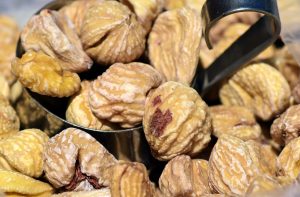Mediterranean diet meal plan for Beginner
- Introduction:
Ready to unlock the secrets of the Mediterranean lifestyle? This easy-to-follow 7-day meal plan is your key to getting started.
Think of it as a tantalizing appetizer to my complete 30-Day Mediterranean Meal Plan, brimming with over 80 mouthwatering recipes for breakfast, lunch, dinner, and snacks. But it doesn’t stop there! You’ll also get a full 30-day schedule to guide you on your healthy eating adventure.
Imagine waking up to the vibrant colors of a Greek yogurt bowl bursting with fresh berries and a sprinkle of crunchy granola. For lunch, picture yourself savoring a hearty lentil soup alongside a slice of warm whole-wheat bread and a crisp salad. And as the day winds down, envision a delightful plate of grilled salmon alongside roasted vegetables and fluffy quinoa.
This isn’t a diet, it’s an exploration of a new lifestyle. The Mediterranean eating plan isn’t about restricting yourself. By enjoying the taste of delicious ingredients, it’s about embracing the pleasure of savoring them knowing that they provide nourishment for both your body and soul. So why hesitate? Let’s embark on this adventure hand in hand!
In this blog post, you will find the beginner’s guide to getting started. I’ll cover:
- The Mediterranean Diet in a Nutshell: What it is, why it’s amazing, and how it transformed my health.
- Your Beginner’s Toolkit: Simple tips and tricks to set you up for success on your Mediterranean journey.
- A Delicious 7-Day Meal Plan: Breakfast, lunch, dinner, and snacks – all planned out for you, featuring easy-to-follow recipes and mouthwatering flavors.
- What is the Mediterranean diet?
The Mediterranean Diet isn’t just about fancy food, it’s a way of life that focuses on filling your plate with delicious and wholesome ingredients. Think colorful veggies, hearty whole grains, nuts and seeds that crunch, and fruits that burst with flavor. And don’t forget the drizzle of good-quality olive oil, the heart of the Mediterranean kitchen!
This eating plan is not, like any trend; it is supported by research that demonstrates its remarkable health advantages. Various research studies have shown that integrating this training into your lifestyle can bring down the gamble of creating heart disease, stroke, and Alzheimer’s disease. Additionally, it aids in weight management. It was maintaining energy levels.
But the best part? The Mediterranean Diet isn’t about deprivation or restrictive rules. It’s about enjoying delicious, fresh foods that are good for your body and soul. So, gather your friends and family, cook up a feast of Mediterranean goodness, and experience the joy of healthy eating!
The Mediterranean Diet encourages people to;

Eat more:
- Fruits.
- Vegetables.
- Whole grains.
- Legumes.
- Nuts and seeds.
- Heart-healthy fats.
Eat less:
- Processed foods.
- Added sugars.
- Refined grains.
- Limit alcohol consumption.
The Mediterranean diet is considered a healthy diet because it is based on whole, unprocessed foods and healthy fats. It is also low in saturated fat and cholesterol and limits red meat and processed foods.
the Mediterranean diet has been displayed to have various health benefits, including
- Losing weight: The Mediterranean diet is known to be effective in helping people shed pounds and maintain their weight loss on the run.
- Improved blood sugar control: The Mediterranean diet can help improve blood sugar control in people.
- Reduced blood pressure: The Mediterranean diet can help lower blood pressure, which is a major risk factor for heart disease and stroke.
- Lower risk of heart disease and stroke: The Mediterranean diet has been shown to reduce the risk of heart disease and stroke by up to 50%.
- Reduced risk of some types of cancer: The Mediterranean diet may help reduce the risk of some types of cancer, such as breast and colon cancer.

- Make the Mediterranean Diet Your Own!
The good news is, that the Mediterranean Diet isn’t a rigid set of rules you have to follow perfectly. It’s a flexible way of eating that you can tailor to your specific needs and preferences. No stress, no guilt, no “falling off the wagon.”
“Within the Mediterranean Diet, we even have special occasion days where you can enjoy treats,” says Paravantes-Hargitt, a registered dietician. “Food is meant to be enjoyed, and the Mediterranean Diet encourages a healthy relationship with it. Occasional indulgences are part of the lifestyle. You just pick yourself up and continue the next day as if nothing happened.”
Here are five practical tips to get you started:
- Boost your bean power: Legumes like lentils, beans, and chickpeas are budget-friendly and packed with protein, fiber, vitamins, and antioxidants. Try incorporating more vegetarian meals featuring these versatile ingredients.
- Sip, don’t chug: While red wine is sometimes associated with the Mediterranean Diet, moderation is key. Enjoy a small glass (3-4 ounces) with meals, not as a daily habit.
- Make meat a supporting role: Traditionally, meat was reserved for special occasions. Swap out meat-centric meals for vegetarian dishes featuring beans, tofu, or seitan. Aim for skinless chicken most of the time, and limit red meat.
- Save sweets for celebrations: Just like meat, treats are best reserved for special occasions. While a little sugar in your coffee is okay, don’t make it a daily habit.
- Embrace olive oil: Make extra virgin olive oil your go-to cooking oil. It’s rich in healthy fats, so use it generously in cooking and dressings. Just remember, moderation is key; it’s still a fat after all!
- Complete Mediterranean Diet Food List
Here’s a breakdown of what you should eat more of and what you can cut back on:
| Food Group | Eat Liberally | Eat Occasionally | Rarely or Never |
| Protein | Beans, lentils, chickpeas, tofu, tempeh, seitan | Chicken, fish, seafood, eggs | Red meat, cured meat, processed meat |
| Oil and Fat | Extra-virgin olive oil, avocados, avocado oil, olives | Canola oil | Trans fats, margarine, butter |
| Fruits and Veggies | Non-starchy vegetables, starchy vegetables, all fruits | N/A | N/A |
| Nuts and Seeds | Almonds, pistachios, hazelnuts, walnuts, cashews | N/A | Sweetened trail mixes, sweetened nut butters, sugar-coated nuts |
| Grains | Whole-grain bread, whole grains, oatmeal | Pasta (whole-wheat preferred), couscous, whole-grain crackers, polenta, All-bran cereals | Frozen waffles and pancakes, sugar-sweetened cereals, crackers, other snack foods |
| Dairy | Plain Greek yogurt, plain ricotta and cottage cheese, milk, brie, feta, goat cheese | N/A | Ice cream, sweetened yogurt, processed cheese |
| Sweeteners | Honey (in moderation), small amount of added sugar (coffee, tea) | N/A | White sugar |
| Condiments and Sauces | Tomato sauce (no added sugar), pesto, balsamic vinegar | Aioli, tahini, tzatziki | Barbecue sauce, ketchup, teriyaki sauce |
| Drinks | Water, coffee, tea | Red wine or other alcohol (in moderation) | Soda, fruit juice, bottled sweetened coffee |
| Herbs and Spices | Dried herbs, spices, fresh herbs and garlic are all included. | Salting food to taste | N/A |
- 7-Day Mediterranean Diet Meal Plan for Beginners
Ready to embark on your delicious Mediterranean journey? Here is a Mediterranean Diet meal plan for the seven days to help you get started.
Day 1:
- Breakfast: Mediterranean Spinach, Tomato & Feta Frittata: A flavorful and protein-packed way to start your day.
- Lunch: Grilled Chicken Salad: Simple and refreshing, with a light dressing of your choice.
- Dinner: Greek Shrimp & Feta Skillet: A quick and easy one-pan dish bursting with Mediterranean flavors.
- Snack: Smooth & Creamy Chocolate Chia Pudding: A satisfying and healthy dessert.
Day 2:
- Breakfast: Classic Avocado Toast: A quick and nutritious breakfast with a healthy dose of monounsaturated fats.
- Lunch: Tuna Salad with Mediterranean Quinoa: A protein-rich lunch packed with fiber and healthy fats.
- Dinner: Spinach Artichoke Chicken Skillet: Creamy and delicious, this dish is perfect for a cozy night in.
- Snack: Spiced Nuts and fruit: A healthy and satisfying snack that’s easy to take on the go.
Day 3:
- Breakfast: Sweet Potato & Red Onion Breakfast Skillet: A hearty and flavorful breakfast that will keep you full until lunch.
- Lunch: Hummus Wrap: A delicious and portable lunch packed with vegetables and protein.
- Dinner: Comforting Chicken Soup: A warm and comforting soup that’s perfect for a cold day.
- Snack: Greek Yogurt & Fruit: A light and refreshing snack with a probiotic boost.
Day 4:
- Breakfast: Easy Muesli: A traditional German breakfast with a variety of healthy grains and nuts.
- Lunch: Cauliflower Pasta: A low-carb twist on traditional pasta with a zesty lemon flavor.
- Dinner: Jambalaya: A hearty and flavorful dish with a blend of spices and protein.
- Snack: Carrot & Celery Sticks with Hummus: A healthy and crunchy snack that’s perfect for dipping.
Day 5:
- Breakfast: Shakshuka: A classic Middle Eastern dish with eggs poached in a flavorful tomato sauce.
- Lunch: Shaved Brussels Sprouts Salad: A light and refreshing salad with a satisfying crunch.
- Dinner: One Pot Turkey Chili: A warm and comforting chili that’s perfect for a cold day.
- Snack: Roasted Chickpeas: A healthy and crunchy snack that’s packed with protein and fiber.
Day 6:
- Breakfast: Hummus Toast: A delicious and protein-rich breakfast with a variety of toppings.
- Lunch: Roasted Sweet Potato and arugula Salad: A hearty and flavorful salad with a sweet and salty combination.
- Dinner: Baked Mediterranean Shrimp: A simple and healthy dish packed with flavor.
- Snack: Fresh Veggies with Tzatziki: A refreshing and healthy snack with a creamy yogurt dip.
Day 7:
- Breakfast: Gluten-Free Waffles with Berries & Coconut Cream: A decadent and delicious breakfast that’s sure to satisfy your sweet tooth.
- Lunch: Easy Roasted Ratatouille: A classic French dish with fresh vegetables and herbs.
- Dinner: Perfectly Roasted Whole Chicken with Broccoli and quinoa: A healthy and satisfying meal that’s perfect for a family dinner.
- Snack: Grapes, Cheese & Walnuts: A simple and elegant snack with a variety of flavors and textures.
- Conclusion:
As we’ve explored, the Mediterranean diet isn’t simply a list of do’s and don’ts, but rather a philosophy of eating and living that prioritizes fresh, delicious, and naturally healthy foods. It’s about enjoying meals with loved ones, savoring the flavors of the season, and incorporating movement and relaxation into your daily routine.
By incorporating the core principles of the Mediterranean diet – focusing on fruits, vegetables, whole grains, and healthy fats, while limiting processed foods and added sugars – you’re setting yourself up for a lifetime of good health and vibrant well-being. Remember, it’s not about strict adherence to every rule, but about embracing a flexible and enjoyable way of eating that nourishes your body and soul.
So, take a deep breath, grab a handful of olives, and start exploring the deliciousness and health benefits that the Mediterranean diet has to offer. You’ll be amazed by how good you feel when you prioritize the foods that nature intended us to enjoy!

